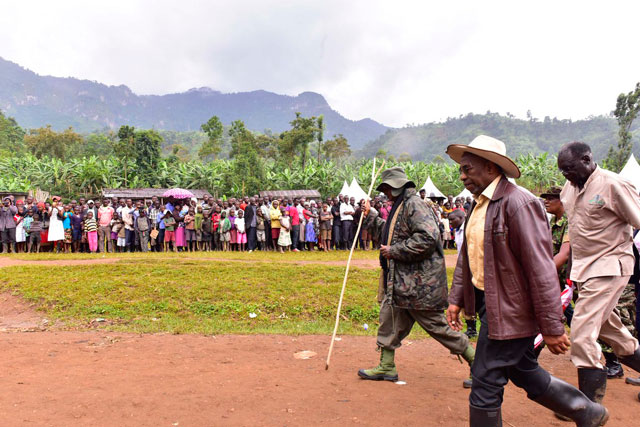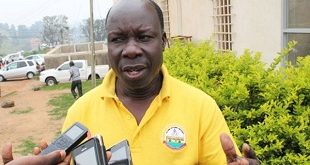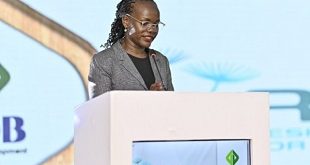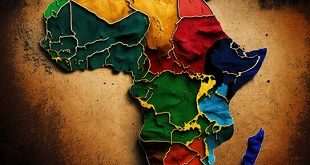
The challenges and opportunity for Museveni at 80 years as he enters this important election year
THE LAST WORD | Andrew M. Mwenda | This is an election year. President Yoweri Museveni has entered it with many tactical advantages. The leader of the largest opposition party, Robert Kyagulanyi aka Bobi Wine, has been almost mute, barely making any threatening move. His political party, NUP, is internally divided and squabbling. Museveni’s biggest headache, Kizza Besigye, is in jail for treason and terrorism. He may, therefore, be kept in jail until after the elections early next year. The evidence against him is serious. His political party, FDC, has been splitting into bits and pieces. The other “opposition” political parties, DP and UPC are in bed with Museveni.
Yet this face of things masks a more complicated reality. Uganda faces serious economic challenges. And there is no vision of how to wean itself from them. Since 2020, the government has been unable to revise her expenditure plans to reflect its economic realities. In the 2020/2021 budget, government estimated to raise Shs19 trillion in tax revenues. It was only able to raise Shs17 trillion. Yet this was the year of the COVID pandemic that had forced government to borrow more, thereby increasing her fiscal deficit. In 2021/2022 budget, government planned to raise Shs22 trillion in tax revenues. Government collected Shs21 trillion. And rather than try to cut her spending, it increased it.
This tendency to overestimate her revenues and increase her spending has not stopped for four years in a row. In 2023/24 budget, the government planned to raise Shs30 trillion in taxes. It was only able to raise Shs27 trillion. Yet in the 2024/2025 budget, it has projected to raise Shs33 trillion. Rather than address the causes of these revenue shortfalls, government has buried its head in the sand assuming its dreams will come true. To meet these revenue shortfalls, government has been borrowing heavily. Today, both domestic and foreign debt is growing like flowers in June. Interest payments on these loans now take over 30% of the budget. Because it is an election year, it is going to be very difficult to cut spending. Therefore, we should expect more debt.
The elections will also impose heavy exertions on Museveni’s physical and intellectual energy. Now 80 years old, the president has lost most of his zest and dynamism. Although the economy continues to grow, the ability of the state and his NRM party to function has significantly diminished. The capital city, Kampala, is the biggest demonstration of this collapse. Its streets are filled with potholes and giant craters, their sidewalks are overflowing with dirt and garbage.
Kampala City, the heartbeat of the country, has no streetlights or proper traffic signs; its drainage is blocked so that every time it rains the city floods. The rich and poor have taken over swamps and built homes and factories in them, impeding water flow. Trees in the city are being cut down, the buildings are murky, the air is dangerously polluted, boda boda riders are above the law, traffic jams are chronic, thuggery and brigandage on the streets have reached new heights, people get mugged by thugs in broad daylight without police being able to do anything about it. The population is restless.
Therefore, while Museveni’s advantages are tactical, his challenges are strategic. The fact that his opponents seem divided and weak does not mean all is fine. The conditions in which the president, the party and the government are now place them in a vulnerable position. If a serious challenger emerges on the horizon, she/he can threaten to upset the president’s electoral apple cart. With his person old and tired, his party almost nonexistent and opportunistic, and his government unable to function, it is possible Museveni will have limited ability to respond effectively.
Thus, the absence of a strong challenger can be fixed in a very short time while the infrastructure and governance crisis in the country can only be fixed over the long term. The president will be forced to print money to rent political support. But this will create massive inflation which in turn may provoke protests like those witnessed after the 2011 elections. This leaves the president with only one card – the security services.
Museveni will need to unleash such unprecedented violence early in the day to demonstrate to everyone that he is willing to stay in power at all costs. For then, many people may feel that the election is a sham and dampen voter turnout. If only 50% of the registered voters show-up, it is possible for Museveni to get 55% of that. But hope relies on the assumption that current confusion in the opposition will stay. But if a charismatic upstart shows up with an appealing message that increases voter turnout to 70%, the president will have to exercise massive rigging and violence. Therefore 2025 may turn out to be the most violent election ever.
Museveni has one strategic advantage though. Western powers that seek to poke their noses into our internal political processes have lost a lot of influence in Uganda. Our country today is far from the economic doldrums of the 1990s when Western donors paid for over 50% of the budget. The economy has grown and generated more government revenues. So, a significant share of spending now comes from domestic sources. China has emerged as a major source of funding for major infrastructure projects, eclipsing the West. For Museveni now, there is also Russia and India. The shifting global balance of power is changing domestic political calculations.
Yet I think the West cannot be written off that easily. This is especially because it still holds ideological sway over Ugandan elites. Ugandans continue to look at Western ideals such as democracy and human rights for inspiration. China has not offered an alternative to these ideals. Its approach is largely a bread-and-butter strategy: give money for huge infrastructure projects, ask no political questions but instead focus on repaying the loans with cash or by giving them minerals. Bread and butter are important. However, the human soul is always yearning for something more inspiring.
We have therefore entered an election year with a lot of uncertainty. Rather than improve the quality of governance, the pressures from this election can only accentuate corruption, paralysis and buccaneering in government. Without a strong and effective leader to retain effective control over runaway public theft, public anger can only grow. Uganda is piling up social dynamite. What is missing right now is the supply of a detonator.
*****

amwenda@ugindependent.co.ug
 The Independent Uganda: You get the Truth we Pay the Price
The Independent Uganda: You get the Truth we Pay the Price



